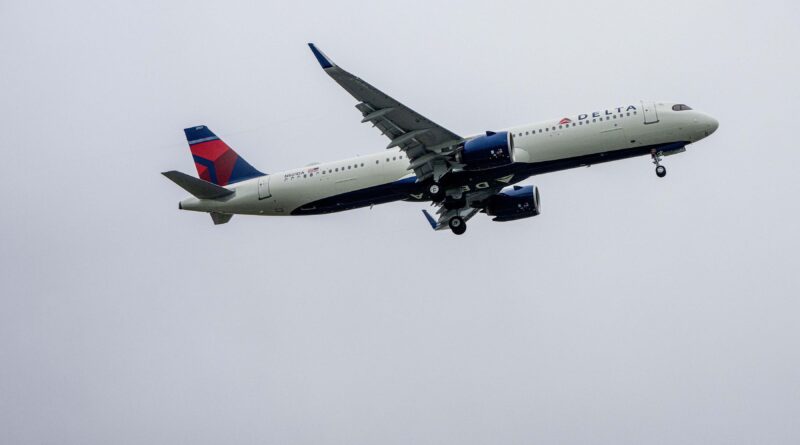Delta Pilot Allegedly Pulled Gun on Captain, Threatened to Shoot
In a shocking incident that took place in August 2022, reported in a recent grand jury indictment uncovered by the AP, a pilot, Jonathan J. Dunn, who was a participant in the Transportation Security Administration’s Federal Flight Deck Officer (FFDO) program, has been indicted for allegedly threatening to shoot the plane’s captain if the flight was diverted due to a passenger requiring medical attention.
Dunn, who had previously been authorized to carry a firearm on board as part of the TSA FFDO program, now finds himself expelled from this program and facing serious legal consequences. His employment with Delta Air Lines has also, of course, been terminated.
The dispute arose over the potential diversion of the flight because of a passenger’s medical emergency. Dunn reportedly threatened the captain with multiple gunshots if the flight was diverted.
The details surrounding the incident, including the airline, flight route, and whether the diversion eventually occurred, remain undisclosed. The Transportation Department’s inspector general’s office is working alongside the FBI and the Federal Aviation Administration to investigate this alarming case.
Dunn’s indictment, issued by a grand jury in Utah, alleges that he “did use a dangerous weapon in assaulting and intimidating the crew member,” a felony that carries a maximum penalty of 20 years in prison. An arraignment for Dunn is scheduled for November 16.
This disturbing revelation comes just days after an off-duty pilot in the jumpseat attempted to shut down the engines of a Horizon Air jet midflight. Joseph David Emerson, an Alaska Airlines pilot, cited depression and psychedelic mushrooms use as contributing factors. This incident raises questions about the screening processes for pilots, as they are primarily reliant on self-disclosure during medical exams. Trustworthiness and mental health assessments are vital, as even a perceived issue can have serious consequences in the airline industry. Passengers have to be able to trust the people flying the airplane beyond any reasonable doubt.
It will be interesting to see if new security measures are implemented as a result of these incidents. While this particular incident took place over a year ago, the timing of this revelation coming so soon after the Horizon 2059 incident is sure to raise some eyebrows among Federal officials and the traveling public. Jumpseats are a critical piece of the airline logistics puzzle, helping crew members reposition and commute to work. Meanwhile, absent having air marshals present on most flights – just like one of many measures El Al takes to protect passengers, the FFDO program theoretically sounds like a great idea – pilots are already (again, in theory) subject to a high degree of vetting, so why not deputize them?
Following these incidents, however, I could see Uncle Sam taking a very close look at just how much trust we’re blindly placing in our airline crews. Of course, the overwhelming majority of airline crew members in the US are trained, trustworthy professionals who just want to get you from point A to point B safely. And those who do it right, who dedicate their careers to our safety, deserve our respect. However, as they say, a few bad apples spoil the bunch – and given lives are at stake here, I could see a re-evaluation of protocols taking place over the coming months. In fact, we already see Known Crewmember (KCM) protocols being revisited, with DEN piloting new screening technology for crew.
The incident involving Dunn and the recent Horizon incident underscore the importance of ensuring the mental and emotional well-being of those responsible for flying commercial aircraft. Maintaining the highest standards of trust and mental health screening is critical to guaranteeing passenger safety and the smooth operation of our airline industry.

